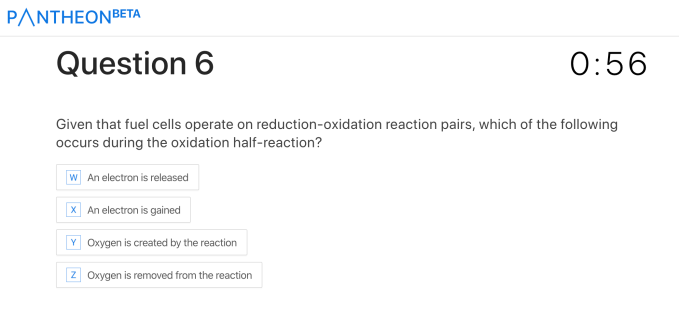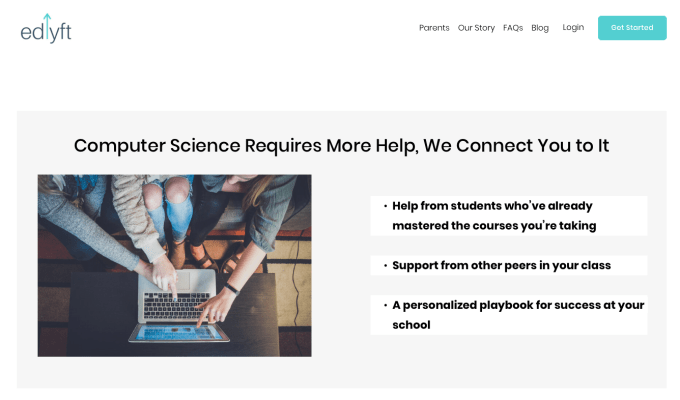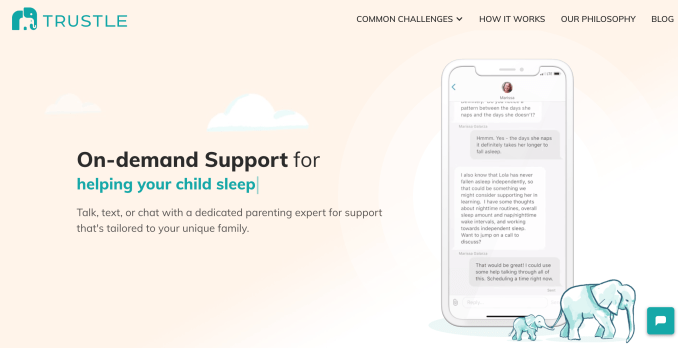With world events overtaking the tech world’s preferences to meet for coffees and convene at events, Y Combinator skipped its famous two-day live Demo event and went for a radical experiment: no demos at all, but instead a long list of the nearly 200 startups in its Winter 2020 batch, with links to their sites and one-page slides. We’ve done the legwork for you in giving you a full rundown of who does what, and we have also come together on a group video chat on Zoom to talk through our takeaways of the format this year (missed it? here’s the recording). Now, in no particular order, here is our shortlist of some of our overall favorites.
Taiv
Taiv wants to help your local neighborhood sports bar better monetize the commercials you see on those in-bar TVs. Charging $4,200 a year per location, Taiv lets businesses replace live commercials with business advertisements about specials or deals.
Taiv is one of the classic startups that unlocks pre-existing space for monetization opportunities by helping local businesses replace irrelevant advertisements for self-promotion. Plus, the idea seems pretty scalable beyond your classic sports bar to any business looking for a way to cash in on existing screens.
LegionFarm
Esports coaching. LegionFarm charges customers an hourly rate to team them up with top tier/pro players who can coach them in games like Apex Legends, Destiny 2 and Fortnite. The company says that in the last year alone it’s facilitated over 350,000 hours of coaching (with players paying an average of about $16 per hour) with an ARR of $7.2 million. We wrote about Legionfarm here.
Esports is huge, and it’s only going to get bigger. But getting good at video games can be hard. This is especially true of the Battle Royale games that are oh-so-popular right now — games like Fortnite, PUBG and Apex Legends, where it’s easy to spend 15 minutes running around collecting things only for your whole game to suddenly and dramatically end when someone catches you off guard. Like any competitive activity, you get better at video games when you play with people who are better than you — but generally, good players want to play with other good players, not randos they meet in matchmaking.
Just as one might pay a golf coach to fix their swing or a personal trainer to fix their form, I love the idea of being able to pay someone to get me up to speed in a game I’m into without feeling like I’m dragging them down. With esports becoming increasingly mainstream, the timing is right and the market will only grow.
Somatic
Industrial bathroom cleaning is a prime “dull” and “dirty” candidate to be replaced by automation. Somatic builds large robots that are trained to clean restrooms via VR. The system sprays and wipes down surfaces and is capable of opening doors and riding up and down in the elevator.
It seems very unlikely that humans will clean public bathrooms forever, given how menial, repeatable and undesirable of a job it is. With an enormous number of bathrooms in the world that have largely standardized elements that don’t require complex movements or decision-making, Somatic has a huge addressable market for a robot that’s feasible today. We’ve written about Somatic here.
Homestead
Homestead helps home owners convert their garages into rental properties at no upfront cost. Homestead pays for all the construction, tenant search and management, and then splits the rent income with the home owner. A new California law allows the state’s 8 million garages to be rented out as living spaces, creating an enormous market opportunity. Homestead’s founders met at MIT’s graduate school of architecture and city planning, and the startup has already done $1 million in sales.
Underutilization of assets is a huge area of innovation right now, and few of these assets are as valuable as real estate and housing. It’s the right time for this startup since California recently passed the law allowing conversions of garages into real estate, and we may see more states follow suit. If the economy goes into official recession, people will be seeking more revenue streams like the one Homestead provides, despite any inconvenience and especially if there’s no upfront cost. Many major cities currently have housing crises this could lessen. Homestead could expand beyond garages to explore improved utilization of back yards for constructing in-law units, attics, basements and investment properties.

Pantheon
Modeled on knowledge-based game-show-style events for academic students like the Science Bowl or the UK’s University Challenge, Pantheon is a learning app where middle- and high-school-aged students come together not only to compete against each other, but to meet like-minded nerds to chew the fat. It also serves as a kind of ‘recruitment’ platform, where colleges and companies can discover promising candidates.
Educators are always looking for different ways to engage students and keep them on their toes. Pantheon wants to be a part of the mix. The app is based around the idea of time-based quiz questions, similar to the kind you might encounter on the Science Bowl in the U.S., or University Challenge in the U.K. — tough questions aimed at brainy kids who are competing against each other. While that might sound limiting, the formula could be easily tweaked to cover a variety of levels and subjects, and while you come online as an individual and you play against others to work your way up a leaderboard, you can then take that relationship into a more conversational one akin to a special-interest social network. We liked the fact that it’s a simple idea, executed very well, addressing a bigger trend around online education. Lots of potential here.
FrogLabs
FrogLabs provides weather forecasting AI to businesses for predicting solar and wind energy production, delivery delays, staffing shortages, sales demand and food availability. By ingesting petabytes of weather data, it can save companies money by ensuring their logistics aren’t disrupted. Founded by a long-time Googler who started its Project Loon internet-beaming weather balloons, it’s now signing up e-commerce, retail, rideshare, restaurant and event businesses.
Climate change is undeniable and businesses need to be prepared for its consequences. With more delivery and on-demand services emerging, accurate ETAs and route optimization that can be impacted by weather will be critical to maintaining healthy margins. The data FrogLabs is collecting also could be applied to the insurance and real estate industries as natural disaster risks change what land is most valuable.
1build
Automatic, data-driven job cost estimates for construction companies. You upload your plans, and 1build says it can prepare accurate bids “in minutes.” The company projects a revenue run rate of over $600,000, and says it has completed estimates for mega companies like Amazon, Starbucks and 7-Eleven.
Construction is one of the classic industries rooted deep in analog, physical activity that is being transformed by technology: We are seeing the invention of new building materials and machinery, computer-aided engineering breakthroughs and a lot of apps and other services that are helping to speed up the process of how the many people involved in the process of designing, financing and building a property work together. 1build is in the third of these categories. Construction jobs are notorious for being behind schedule and over budget, suppressing interest in starting them. Not only can 1build reduce work time necessary to generate estimates, but it’s also building an extremely lucrative data set about construction materials and labor costs. It has rocketed to an impressive $600,000 revenue run rate and already has big clients like Amazon, 7-Eleven and Starbucks. If 1build establishes itself as the way to get the lowest bids for a construction project, it could insert itself into the transaction to skim the savings in an industry where huge amounts of money are spent.
FitnessAI
With 18,000 paying users, FitnessAI generates personalized weight-lifting plans. The founder, Jake Mor, has been building applications for 10 years — and fitness apps for four years. The startup charges $90 per year.
FitnessAI is a favorite for a few reasons. First, it’s a subscription fitness app, something that I would have dismissed a few years ago but, after the success of Calm and Headspace, seemed like a pretty good idea. And second, that the company is scaling rather quickly. Constructed from a huge weight-lifting data set that its founder had acquired via a different app he built, FitnessAI’s tailored exercise service is well over $1 million ARR and is growing pretty damn quickly. For a Demo Day ready company, that’s impressive. Oh, and the founder is affable and interesting, which never hurts.
Visual One
Movement-detecting security cameras can bring up a lot of false positives: motion, yes, but not necessarily harmful. Visual One has built an AI platform that integrates with home security cameras to “read” the specific movements that that they detect. Owners can create customized alerts so that they get notifications only for what they care about. The company’s software can check for furniture-destroying pets, package-lifting thieves, the death-defying antics of toddlers and more.
The problem with traditional security cameras is someone has to skim all the footage. Recognition of gestures and suspicious activities could make security camera footage more actionable without relying on facial recognition that can cause privacy or discrimination concerns. By building AI that could be added to any camera, Visual One sidesteps many of the manufacturing and distribution challenges associated with hardware products. We wrote about Visual One here.
TrimWire
TrimWire hooks into a company’s bank accounts and credit cards to automatically reduce monthly costs by flagging anomalies and hunting for potential savings on recurring expenses (such as forgotten subscriptions).
Fintech has proven a super-hot sector for M&A deals, and it’s easy to imagine TrimWire fitting into a tax or accounting suite like Intuit. Getting access to clients’ entire spending opens up adjacent opportunities for financial services such as lending. With a potential recession on the horizon and a general belt-tightening of businesses as they try to show margin in the post-WeWork era, TrimWire’s savings tech could quickly become popular.
Pilot
Pilot handles payroll, benefits and compliance for hiring remote contractors. Customers pay $60 per contractor per month for Pilot to help treat contractors like employees by offering benefits, stock options and expense reimbursements. With coronavirus quarantines familiarizing more companies with remote work, there could be a big market for ensuring their retention and productivity by making them feel like part of the team.
Remote work is essential now, but likely to stay much more common than it was before the coronavirus outbreak. With cities like San Francisco and New York constantly getting more expensive, more companies want to station teams abroad. Talent competition is still stiff for tech workers, and providing easy on-boarding and solid benefits to top contractors could vastly improve hiring conversion rates.
HireSweet
HireSweet is building a hiring platform that pushes recruiters toward ideal candidates that may not explicitly be looking for a new job. The platform analyzes behavior like who is updating their LinkedIn, adding to open source on GitHub or nearing a vesting cliff. The team earned $150K in MRR last month.
Recruiting is expensive and a top occupier of founders’ time. By preemptively recruiting candidates before they go looking, companies could speed up the hiring process and avoid bidding wars by snatching up talented people before they receive a bunch of offers. Rather than starting from scratch, the team built an engineer assessment tool that is now the backbone of this new product. HireSweet has jumped to a sizeable $150,000 monthly recurring revenue thanks to it earning a big $8,500 per hire.
Trustle
When a child stops sleeping through the night or starts having tantrums, parenting can feel like flying blind. Trustle is a $50 per month subscription for parents that gives them access to a dedicated parenting and child development expert. The founders think the internet has created too much conflicting advice and opinions for parents, resulting in frantic Googling that doesn’t lead to good advice. Trustle actually wants to solve another problem: There are 180,000 preschools teachers with a masters in child development being paid on average $35K a year, representing an incredibly underutilized and undervalued pool of expertise. Trustle wants to connect the two with its system for parents to learn about and act on their child’s cognitive, social, emotional and behavioral development. The founding team includes the former head of impact at Google for Education, a clinical child psychologist and a former edtech startup founder.
Trustle is cool for a few reasons. First off, it provides alternative jobs to an undervalued and underpaid group: teachers and child development experts. The company wants to create a service of streamlined help to parents who need personalized information. Raising a child is expensive, and $50 per month seems like a significant added cost for new parents. But if the startup is able to target rich, busy young parents who will gladly exchange money for peace of mind, the subscription could take off. Trustle is also a smart retention play — a growing relationship between an expert and a family involving goal setting and long-term advising could lock in families at the nascence of their child’s education journey.
Cron
Cron is building a Superhuman for Google Calendar. Cron’s co-founder Raphael Schaad previously helped create the original iA Writer app. His new startup is charging $19 per month to give G Cal power users some added power features that clean up workflows and integrate with other productivity apps.
Calendar apps serve plenty of needs for power users, and there hasn’t been a standout paid product that can do for Google Calendar what Superhuman did for email. There’s an awful lot we don’t know about Cron, which is still in a small private beta, but there’s a clear market and the founding team looks up to the task.
Ditto
Ditto’s founders are hoping to create the Figma for words, helping teams plan out more thoughtfully the copy they use to describe their products and workflows. The collaboration tool created by Stanford roommates Jolena Ma and Jessica Ouyang currently has 80+ different companies represented among their users.
Workplace collaboration is the order of the day, with what was once a productivity goal becoming an urgent need in recent days with numerous governments enforcing social distancing to slow down the spread of the novel coronavirus. Ditto is modeled on the idea of design-focused collaboration apps like Figma, Canva, Frontify and Abstract, but puts its focus squarely on copy writing: It’s a platform that lets users create, update, track and discuss word-based messaging. You might say that this is something that other platforms like Figma will be able to handle already, but we liked the focus on word-based messaging here. It means that Ditto’s scope goes beyond web, app and advertising design: It could be used anywhere that a company may be sending out words about itself, or is getting discussed — opening up a large, longer-term opportunity.
Nexu
Like many other personal financing operations in Latin America, car financing is an expensive, low-tech, arduous process. Mexico-based Nexu, a financing platform for Latin American car dealerships, uses dynamic credit scoring to give car buyers an approval with a turnaround of a few seconds. The founding team met as Wharton MBA candidates.
Personal financing services in Latin America are slowly starting to improve as bureaucratic oligarchical banks lose power to high-funded, consumer-obsessed startups. Cash-based societies, non-tech banks and high fees have thwarted the development of personal financing products in the past. So, the Latin American startups that use tech to make personal financing systems faster and more efficient for the massive middle class are taking off. Nubank is valued at $10 billion. Tech-enabled property management startups are also scoring growth-stage funding. Nexu looks to be succeeding already, too, with its automatic, tech-first service for car financing, bringing in $450K in monthly net revenue.
RoboTire
Anyone who’s ever sat in a service shop waiting room knows how time intensive the process can be. RoboTire promises to cut the wait time from 60 minutes down to 10 for a set of four tires. The company has already begun piloting the technology in locations around the U.S.
RobotTire’s ability to turn around four tire changes in 10 minutes will be an appealing addition to any service center or dealership. Once the company’s able to scale the robots and significantly reduce price, this system could prove a true disrupter.
Riya Collective
Indian wedding attire is expensive, so Riya Collective launched a Rent the Runway for ethnic, fancy clothing. The clothing rental startup is founded by two Indian American entrepreneurs, and uses a data-driven styling and sizing algorithm. Riya Collective has grown from $10,000 in monthly revenue to $50,000 in monthly revenue in three months.
Because it’s so hard to find places that sell Indian clothing in the United States, the status quo of Indian attire is itchy and ill-fitted. Double points if it’s from an old trip to India when you were a kid. I think Riya Collective thoughtfully taps into a group of diaspora Indians that want to express their culture, but don’t have those items in their closet. As Indian culture also continues to become more mainstream, I think it’s smart that they’re looking past clothing into other categories as well. Finally, I think it’s notable, and perhaps flattering, that Rent the Runway released its comparatively slim selection of Indian attire after Riya Collective went live.

EdLyft
Founded by two former high school classmates and computer science majors who reunited in the Bay Area after college, EdLyft provides a mentor network, tutors and peer support for college students who may lack a background in CS, but are pursuing it as a major or career.
Computer science can be incredibly tough, especially if you’re having trouble wrapping your head around a fundamental concept that the rest of the class just breezed right on past. Failing to keep up can mean getting booted out of school. EdLyft is building a support network of sorts, pairing you with other students from your school for study groups and direct mentorship from those who’ve already conquered a class.

Moons
Moons describes itself as a SmileDirectClub for Latin America. Launched in March 2019, Moons offers orthodontic treatments as well as clear aligners, and claims it is half the price of SmileDirectClub. The company has $600,000 in monthly sales, and has hired more than 200 people across 15 retail locations. We wrote more about Moons here.
Invisalign and a number of others have helped bust the myth that cementing intrusive, and sometimes destructive, metal railroad tracks onto your teeth is the only way to straighten them out. Moons takes that concept further by aiming for very competitive pricing while targeting a market ripe for orthodontics — Latin America is one of the world’s biggest for cosmetic surgery overall. Teeth alignment is just the start: The company plans to extend to many other categories across its retail and online business.















































Comment